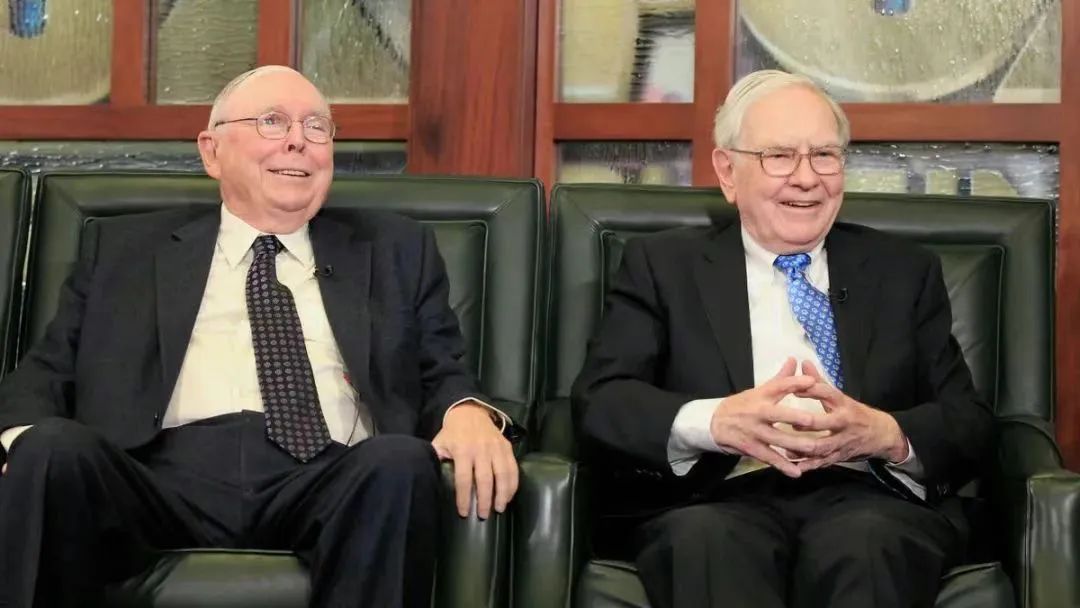伯克希尔1995年年会问答精选(9)
每年5月份,初夏,在美国小镇奥马哈,沃伦巴菲特和查理芒格都会举行长达6小时的伯克希尔哈撒韦公司年会。年会上有个传统环节,由股东现场提问,巴菲特和芒格现场回答。这个环节占用了年会绝大部分时间,里面很多问题都非常有趣,包含了看待事物的方式、人生哲理、投资方法。
目前能搜罗到的伯克希尔年会问答实录,从1994到2023合共三十年,当时读的是中文翻译的版本。读完之后想再读,但我想既然再读为啥不直接读英文原版呢,于是找到了英文原版重读,同时这次做了一些精彩的摘录。当然了,其他部分也很精彩,只是我对这些摘录更有共鸣,你去读有共鸣的部分肯定是不一样的,所以推荐大家去读全文。这份问答录适合想在生活中和工作中获得长久的独立、充实、理性、愉悦的人。
人生中能找到一个品行卓越的老师,并且他还可以以某种方式深入地影响你,是一辈子最幸运的事情。沃伦巴菲特找到了本格雷厄姆,查理芒格找到了本杰明富兰克林。
以下以摘录的形式,把某个问题的原文原封不动摘录下来,然后某些段落后面加上我自己的感想。
————
Coca-Cola “doing exactly the right thing” with its cash
AUDIENCE MEMBER: Thank you. Second question concerns dividends. Last Friday night, by coincidence, on Louis Rukeyser’s weekly television show, the special guest was Philip Carret.
And Mr. Carret made the statement that his favorite American stock is Berkshire Hathaway. And one of the major reasons he stated was that, “Berkshire has never paid a dividend, as we all know,” and consequently, you had superior utilization of the extra cash.
Now, if you extend that reasoning, could it also be a beneficial policy if Coca-Cola and Gillette stopped paying dividends and utilized the cash in other ways?
WARREN BUFFETT: Well, it depends what they could use the — how they would use — utilize the cash, what they could use it for. Those are more focused enterprises than Berkshire, at least in terms of products.
And they — I think — I commend managements that have a wonderful business for utilizing cash in those wonderful businesses, or in businesses that they understand and that will also have wonderful economics, and for getting the rest of the money back to the shareholders.
一家公司首先要有长期稳定的正经营现金流,才有资格往下谈分红和回购。而拥有正现金流入,也不一定就要分红和回购,取决于公司能不能把这些资金投入到提高收入和利润上去,如果投入一块钱现金再未来可以产生多于一块钱的现金回报,那么就可以继续投入,也就可以不分红不回购。如果即使继续投入资金也没法扩大收入和利润,那就不如分红给股东,或者是在市场估值低于内在价值的时候进行回购。可口可乐公司就是专注在饮料行业里,这个行业是有一定资本投入天花板的,到了一定的阶段就不需要继续投入了。而伯克希尔是没有特定业务范围的,可以放眼全世界的各种行业的公司,可以投入资本的地方很多。
So, Coca-Cola, in my book, is doing exactly the right thing with its cash when it both — when, A, it uses all the cash that it can, effectively, in the business to expand in new markets and all of that sort of thing.
But then beyond that, it pays a dividend which distributes cash to shareholders, and then it repurchases shares in a big way, which returns cash on a selective basis to shareholders, but in a way that benefits all of them.
So, we — you will benefit from us not paying dividends just as long as we can use the — every dollar we retain — to produce more than a dollar of value, and of market value over time.
Whether we can continue doing that, you know, how long we can continue doing that, I can’t promise you, but that is the — that’s the yardstick by which the decision is made.
And that is the yardstick, I think, by which Coca-Cola’s making the decision, too. And I think that they deserve great credit for exercising the discipline to quit when they — using cash — when they’ve run out of the opportunities to use it well, and then to use it — then to further deploy it advantageously by repurchasing shares.
I think one of the things I admire about my friend, Bill Gates, he’s got 4 1/2 billion of cash in Microsoft, and very few managements can stand having 4 1/2 billion of cash and not doing something unintelligent with it.
很多公司的报表上有一项巨大的Goodwill项目,往往是公司溢价对外收购公司产生的超过账面价值的成本。并不是说这就一定是乱投入,但如果这家公司的管理层不像巴菲特这样谨慎地对待投入的资本,而且整体激励机制还是错的话(经理人普遍喜欢扩大规模),那么就有很大概率这些资本在未来无法产生合理的现金回报。当拥有足够的资源而不去挥霍,是一个非常难得的品质。我们不会仅仅因为做事情而得到回报,只会因为做了正确的事情而得到回报。
So far, it’s made sense for us to retain everything we earn, and I think it’ll make sense for a while longer, but it may not make sense indefinitely.
Charlie?
CHARLIE MUNGER: I hope it lasts a long time. (Laughter)
免责声明:上述内容仅代表发帖人个人观点,不构成本平台的任何投资建议。



